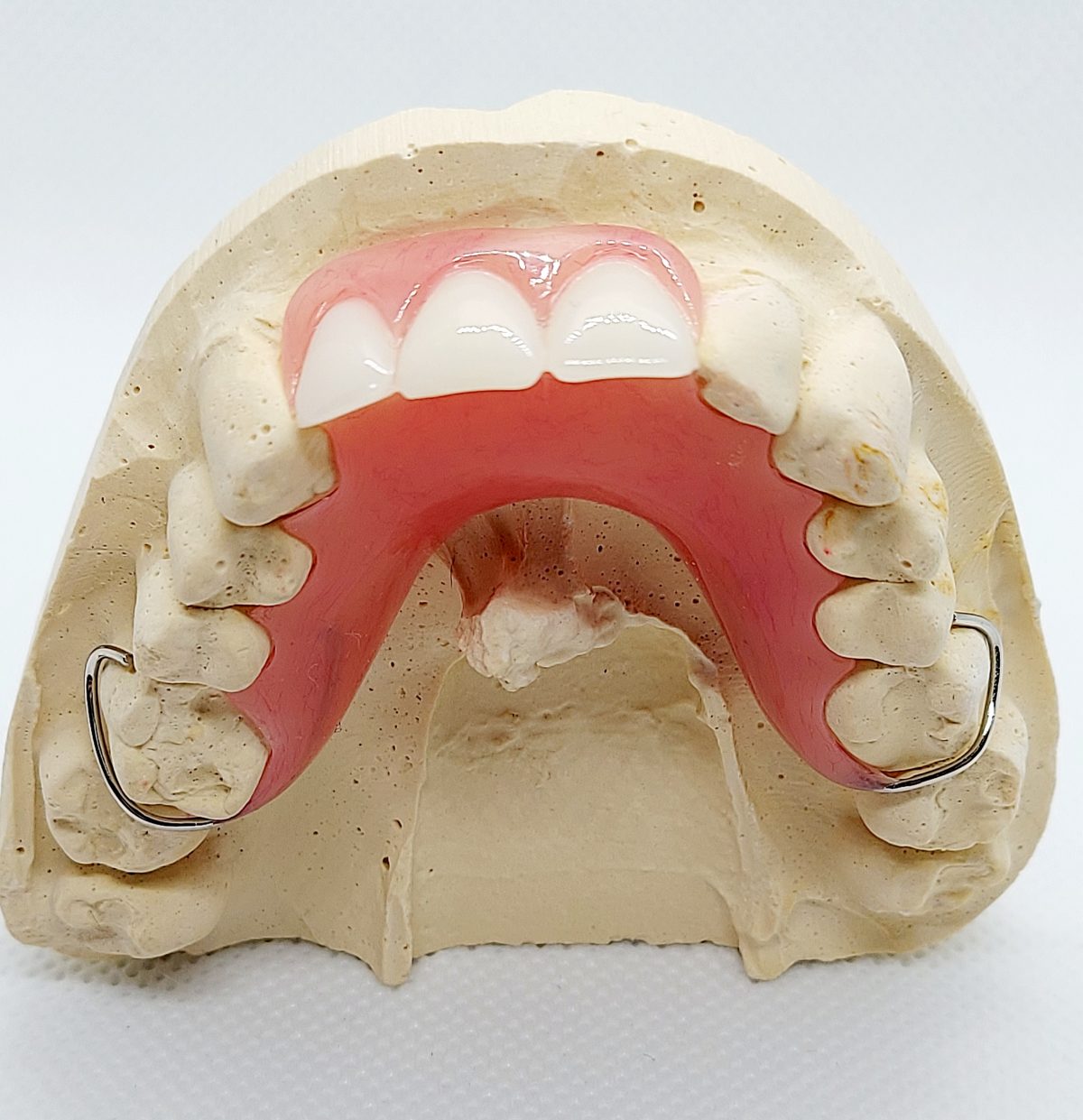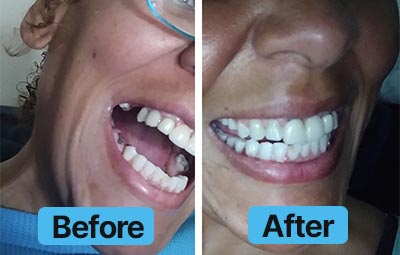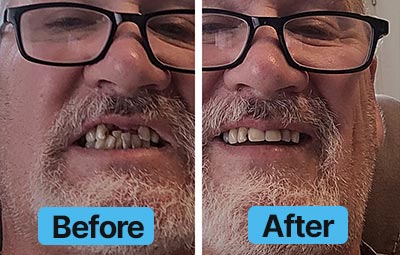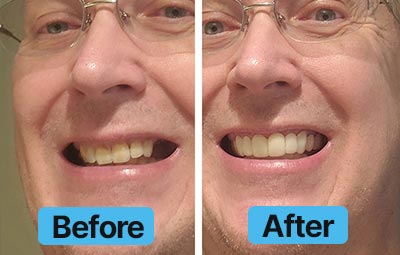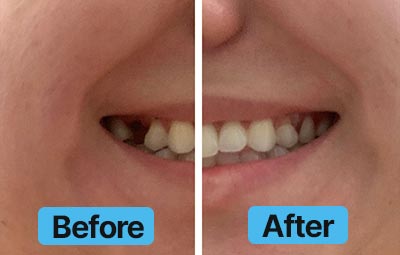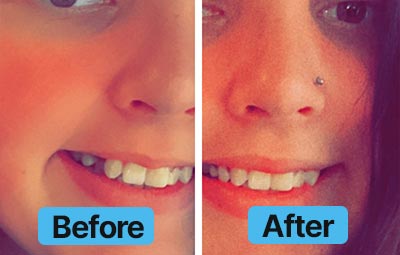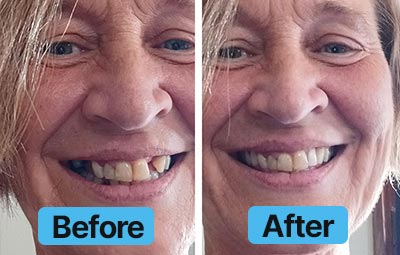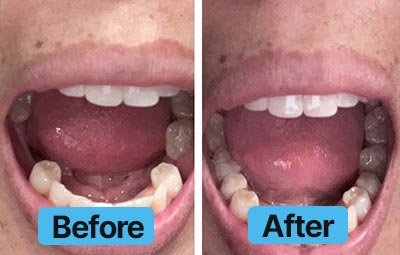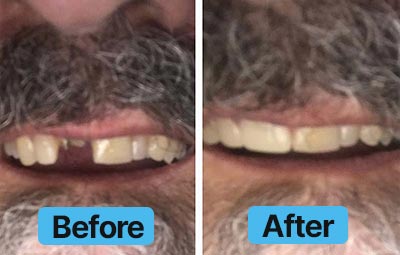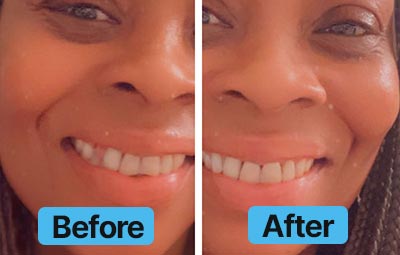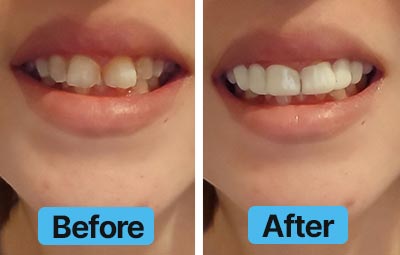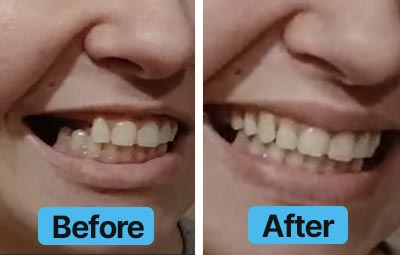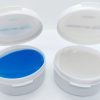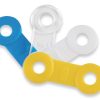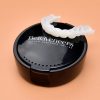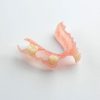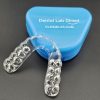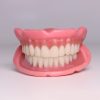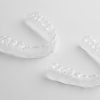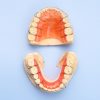Partial dentures with metal clasps are a widely used solution for those missing some of their teeth but prefer a less invasive dental treatment option. These removable dentures can offer a natural-looking smile by filling in the gaps where teeth are missing.
However, improper maintenance of these partial dentures can lead to discomfort and potential damage to your natural teeth. Therefore, this guide aims to equip you with all the essential information to ensure that your metal clasp partial dentures last for many years.





What Are Partial Dentures with Metal Clasps?
Partial dentures with metal clasps are dental prosthetics that replace missing teeth. They are made of metal and acrylic, with the metal clasps serving as hooks that anchor onto the remaining natural teeth to hold the denture in place. Unlike other types of partial dentures, such as those made solely of acrylic, partial dentures with metal clasps offer more stability and durability due to the added support from the metal clasps. This makes them popular for individuals who want a removable, cost-effective solution for missing teeth.
Benefits Of Partial Dentures with Metal Clasps
Partial dentures with metal clasps offer several benefits, including:- Cost-effective solution for missing teeth
- Removable for easy cleaning and maintenance
- Natural-looking appearance that can enhance your smile
- Improved chewing and speaking ability
- Increased support and stability due to the metal clasps, reducing the risk of denture slippage
- It can prevent natural teeth from shifting and causing further dental issues.

8 Solutions for Metal Clasp Problems on Partial Dentures
Here are some solutions to common problems with metal clasps on partial dentures:1. Reduce the Shine
To reduce the shine on the clasps of your partial dentures, your dentist can use a micro-etcher to sandblast the metal or send them to a dental lab for treatment. This service might not cost anything extra, or it may have a small fee. Consult your dentist to discuss the best action to decrease the shine on your metal clasps.2. Adjust the Clasp
If the metal clasp on your partial denture is causing discomfort or irritation, you may want to consider having it adjusted by your dentist. With adjustments to fit the tooth more comfortably, wearing the denture can become a more comfortable experience. You can visit your dentist to discuss the problem and consider potential solutions.3. Consider Partial Dentures with Non-Metal Clasps
Partial dentures with non-metal clasps can be a viable alternative for individuals who are sensitive or allergic to metals. Non-metal clasps are commonly made from materials like nylon or thermoplastic that are less visible and cause fewer irritations than metal clasps.4. Inquire About Implant-Supported Partial Dentures
Implant-supported partial dentures are a long-term solution for missing teeth, offering more stability and comfort than traditional ones. Inquire about whether you are a candidate for implant-supported partial dentures and discuss the benefits and drawbacks with your dentist.5. Replace Worn-out Clasps
Regular use of your partial dentures can lead to natural wear and tear, causing clasps to become worn out or damaged over time. To prevent discomfort or slippage, replace worn-out clasps as soon as possible. You should seek advice from your dentist to assess whether your clasps need replacement and what materials and procedures are required for the repair.6. Practice Regular Cleaning and Maintenance
Proper cleaning and maintenance of your partial dentures can help prevent dental issues and prolong the lifespan of your dentures. Proper maintenance, such as regular cleaning with a soft-bristled brush and mild detergent, can remove plaque and prevent staining, and handling and storing dentures properly can help prevent damage.7. Avoid Hard or Sticky Foods
Eating hard or sticky foods can put undue pressure on your partial dentures, causing damage or discomfort. To prevent damage, avoid consuming foods that require excessive chewing or are challenging to clean from your dentures. Food such as popcorn, nuts, candy, and gum should be avoided.8. Follow Wearing Instructions for Your Dentures
To get the most out of your partial dentures, follow your dentist’s instructions on wearing and handling them. Proper use, such as wearing them for the recommended duration, can help prevent discomfort and damage to dentures. Handle your partial dentures carefully and store them properly when not in use. These solutions can help you get the most out of your partial dentures with metal clasps. With proper care and maintenance, wearing partial dentures can become an enjoyable experience that enables you to restore your beautiful smile and boost your confidence.
How Are Partial Dentures with Metal Clasps Made?
A dental laboratory typically makes partial dentures with metal clasps using a combination of acrylic resin and metal alloy. The metal clasps are custom-made to fit the remaining natural teeth of the patient and are typically made from a variety of metals such as:- Cobalt-chromium
- Nickel-chromium
- Titanium
How to Care for Partial Dentures with Metal Clasps
Proper care and maintenance are essential to ensure the longevity and effectiveness of your partial dentures with metal clasps. To keep them clean, follow the following steps:- To prevent surface scratches, it is recommended to utilize a soft-bristled brush and a non-abrasive denture cleaner.
- Always rinse your dentures thoroughly after meals and store them in water or a solution overnight.
- Avoid using hot water or bleach, which can cause warping or discoloration.
Disadvantages of Partial Dentures with Metal Clasps
While partial dentures with metal clasps offer many advantages, there are also disadvantages. These include:- It may be visible when you smile or talk, affecting the appearance of your natural teeth.
- Improper fit or irregular cleaning of dentures can lead to discomfort or irritation in the gums and surrounding teeth.
- May loosen or wear out over time, requiring replacement or adjustment by a dentist.
- Metal clasps can conduct temperature, making them sensitive to hot and cold drinks.

Alternative to a Partial with Metal Clasps
An alternative to partial dentures with metal clasps is dental implants. Dental implants are placed in the jawbone through a surgical procedure, creating a stable base to support a prosthetic tooth or bridge. They are a more permanent solution to missing teeth and offer better stability and function than traditional partial dentures. However, they can be more expensive and require a longer recovery time. Consult a dentist to determine the best option for individual needs and preferences.
 60 DAY warranty on all custom-made products | 1,000+ 5 Star ★★★★★ Reviews
60 DAY warranty on all custom-made products | 1,000+ 5 Star ★★★★★ Reviews